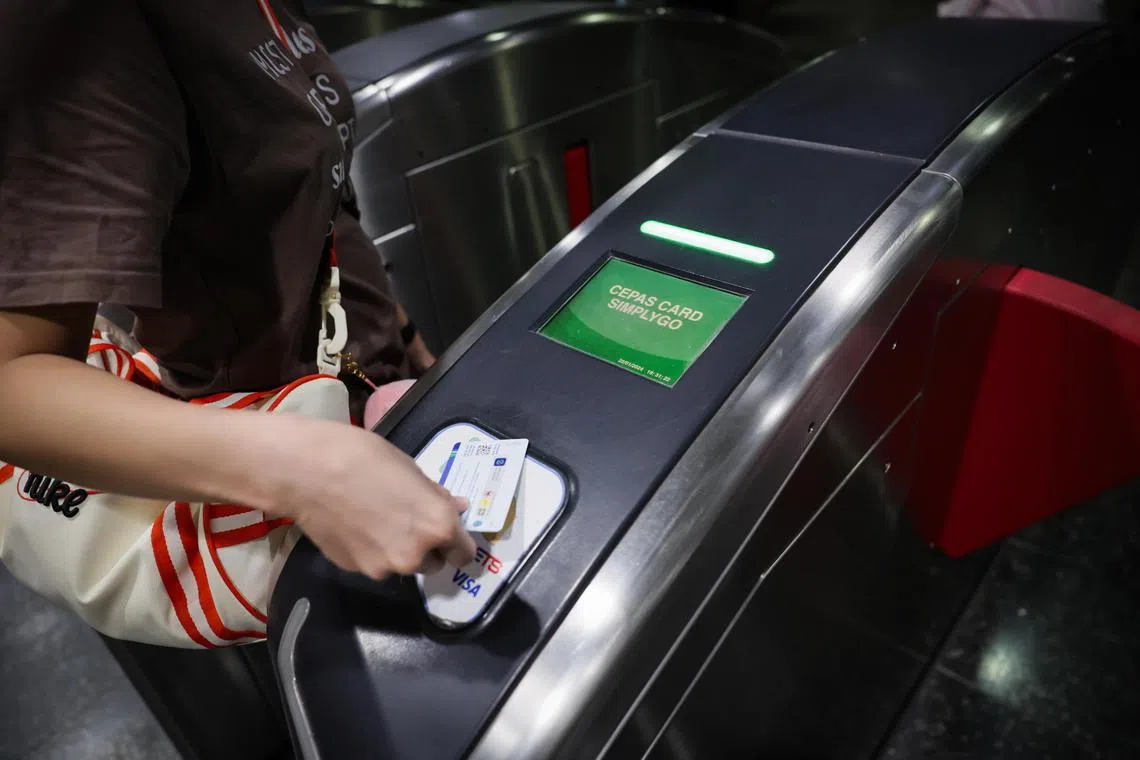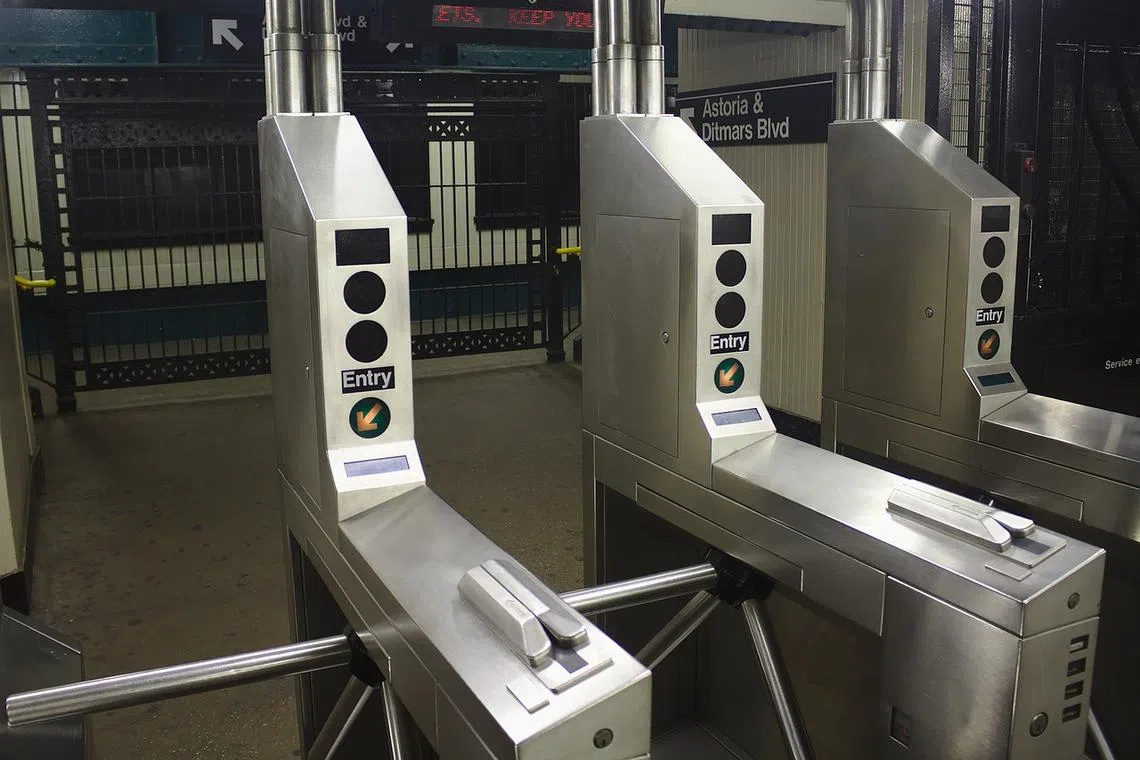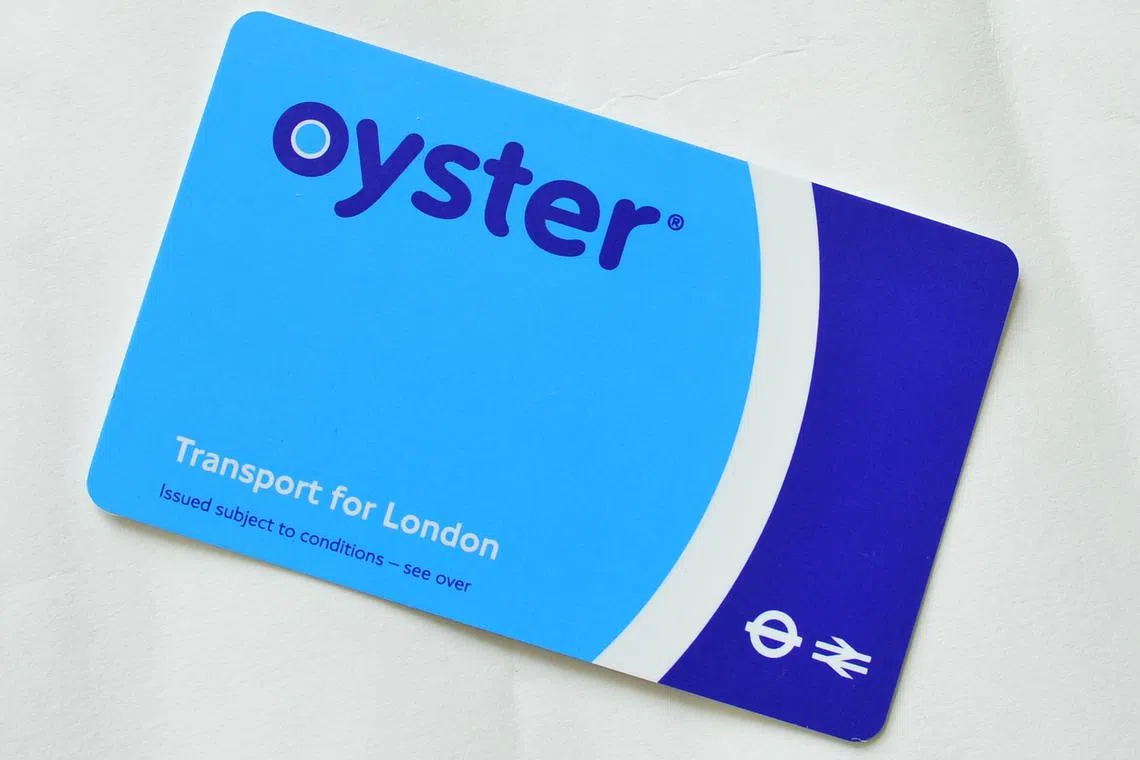Shelving of SimplyGo plan: What are other cities doing with public transport payments?
Sign up now: Get ST's newsletters delivered to your inbox

Singapore's planned move to ditch older cards for SimplyGo sparked unease among some adult public transport users.
PHOTO: ST FILE
SINGAPORE - A number of public transport systems worldwide have begun their shift to account-based ticketing platforms in recent years.
Some still concurrently run systems that offer card-centric modes of payment to cater to the needs of various groups.
With account-based ticketing, travel records are held in a back office and transactions are processed there. In contrast, a card-based ticketing scheme stores transaction data on the cards, and transactions are processed instantly when the cards come into contact with payment terminals.
In Singapore, a planned move to ditch older ez-link and Nets FlashPay cards
SimplyGo transactions are handled on back-end systems.
Pulling the plug on the move on Jan 22,
Mr Chee said there is no technical solution to this for the moment, and this is the case elsewhere too.
He said Hong Kong’s and London’s account-based ticketing cards, for instance, also do not show such information at the terminals. He was referring to contactless payments via bank cards.
The public transport systems of Hong Kong and London use account- and card-based systems simultaneously, checks by The Straits Times showed.
ST takes a closer look at transport payment systems in New York, Australia’s Victoria state, Hong Kong and London, and the roll-out challenges they faced.
New York, United States: Postponing new system indefinitely

Some noted that Omny would limit the homeless community’s access to public transport since they may not have access to smartphones or bank cards.
PHOTO ILLUSTRATION: PIXABAY
Launched in May 2019, New York’s new account-based transport payment system, Omny, which allows commuters to pay via contactless bank cards, physical Omny cards and smart devices, was initially set to fully replace the card-based MetroCard system by 2023.
In April 2023, about four years after Omny’s launch, public transport operator Metropolitan Transportation Authority announced an indefinite postponement of the old system’s complete shutdown.
Omny is expected to cost US$772 million (S$1.03 billion) when it is rolled out completely.
More time was needed to install cash payment options on Omny vending machines at certain subway stations and unify the use of the Omny system across the city’s entire transport network, the New York Post reported in April 2023.
Passengers had also raised security concerns about their data being tracked, while some noted that Omny would limit the homeless community’s access to public transport since they may not have access to smartphones or bank cards.
Victoria, Australia: Transiting to new system
The Australian state of Victoria, whose capital is Melbourne, is upgrading its hardware for transit payments in phases from 2024, and moving from a card-based ticketing system to an account-based one in an A$1.7 billion (S$1.5 billion) move.
A new vendor was appointed in May 2023. The hardware overhaul was projected to take two years, yet no firm schedule has been given on when the account-based system will kick in.
With the new hardware installed, commuters can use credit and debit cards or their mobile devices and existing transit cards for fare payments. Digital payment under the existing system is limited to Android smartphones.
According to Public Transport Victoria’s website, physical cards will continue to be available for those who do not want to switch, but there was no mention of whether existing cards can be used without modifications in the future.
The agency responsible for Victoria’s public transport system stated that there will not be immediate changes to the existing ticketing system with the new contract.
Hong Kong: Boosting legacy card system with bank payments
Contactless bank card payments – a form of account-based ticketing – made an appearance in Hong Kong’s public transport system only in December 2023 for use on the city’s Mass Transit Railway (MTR) system.
Passengers can now use Visa cards, together with the legacy Octopus card, to enter and exit fare gates.
According to MTR’s website, more card options will be available in the next phase of the initiative to widen payment modes in the third quarter of 2024.
MTR stations have two types of fare gates – those in light blue are for passengers paying with contactless bank cards, while gates with yellow card readers are for commuters to tap their Octopus cards.
Since March 2023, new entry and exit gates have been installed as part of the MTR Corporation’s plans to upgrade the payment system.
Some HK$1.3 billion (S$223 million) will be invested to replace 2,400 fare gates, with the new gates featuring a slimmer body and supporting all available payment options – the Octopus card, single-use tickets, QR code tickets (via payment app Alipay, for example) and credit cards.
London, Britain: Coexisting to meet needs of passengers

In August 2022, 530,000 daily journeys on the London underground rail system were made using Oyster cards.
PHOTO: ST FILE
In 2012, London became the first city worldwide to allow contactless payments via credit or debit cards on its public transport network.
In August 2022, 530,000 daily journeys on the London underground rail system were made using Oyster cards, which operate on a card-based scheme, while 1.39 million rides a day were paid for with contactless bank cards, according to figures released by transport operator Transport for London.
In 2021, Mr Mike Tuckett, then head of customer payments at Transport for London, told broadcaster BBC there were no plans to stop offering the Oyster card option.
This is because some people “can’t or won’t use contactless”, so the Oyster card is still the “best and most natural solution”, he said.
In November 2022, the operator said in a tender notice that it is looking to transform the Oyster card system into an account-based one, to support the interchangeable use of devices, among other things.
To be awarded in August 2024, the contract entails a phased transition to full service by August 2026.


